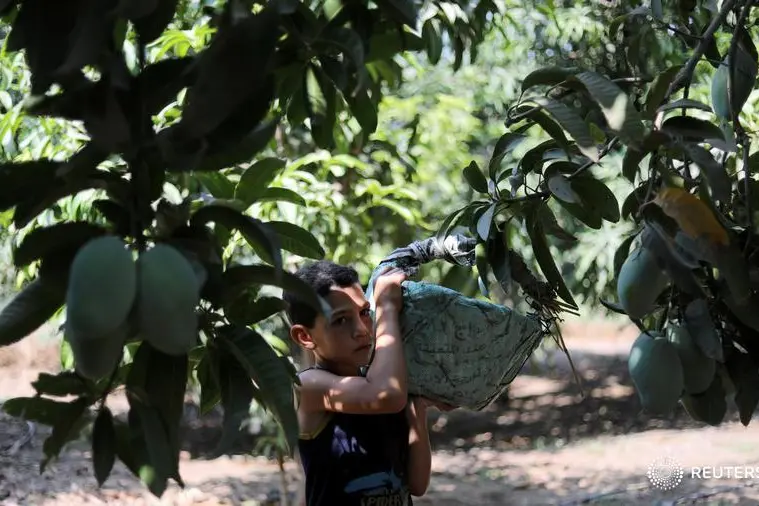PHOTO
Egyptian fertilizer companies halted operations on Friday due to a drop in gas imports from Israel, industry sources told Reuters.
They said the gas import decline was caused by the suspension of operations at major Israeli gas fields following Israel's large-scale strikes against Iranian nuclear facilities and missile factories.
The sources said Egypt's Petroleum Ministry did not provide a date for when gas supply was expected to return to normal.
The ministry did not immediately respond to a Reuters request for comment. But Israel's Energy Ministry earlier said that the offshore Leviathan gas field was closed.
An analyst told Reuters that a second gas field, Karish, had also halted production, while Israel's third gas field, Tamar, remained operational for now.
Egyptian Prime Minister Mostafa Madbouly said that Cairo was monitoring the regional situation closely and was aiming to increase its strategic stocks of various commodities, before holding a high-level meeting with top energy officials and the central bank.
In a statement, Petroleum Minister Karim Badawi said his ministry was working to ensure stable gas supplies to power stations and had already contracted gas shipments and stockpiled fuel oil, while work was under way to bring Egypt's third floating storage and regasification unit online.
Madbouly said the third vessel would bring Egypt's combined regasification daily capacity to 2,250 million cubic feet, more than double last year's capacity, adding that Egypt still hopes to lease a fourth unit to be used in emergencies.
Egypt had to increasingly rely on imported Israeli gas after its own production began declining in 2022. Israeli gas accounts for 40-60% of Egypt's total imported supply and about 15-20% of its consumption, data from the Joint Organisations Data Initiative (JODI) shows.
Egypt signed several agreements with energy firms and trading houses this week to buy at least 150 cargoes of liquefied natural gas in the country's largest ever import purchases that will cost it over $8 billion at current prices.
(Reporting by Mohamed Ezz, Marwa Rashad and Momen Saeed Atallah; Editing by Joe Bavier, William Maclean)





















